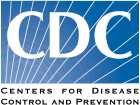 CDC Reports That Sugar Drink Consumption among U.S. High School Students Should Be Reduced
CDC Reports That Sugar Drink Consumption among U.S. High School Students Should Be Reduced
Nearly two out of three high school students have at least one sugar drink each day. One of three high school students has two or more sugar drinks each day.
Sugar drinks, also called sugar-sweetened beverages, are the largest source of added sugars in the diets of U.S. youth. Consuming sugar drinks increases calories--a factor potentially contributing to obesity among youth nationwide. America's youths are drinking more sugar drinks than youths of previous generations. Results from the 2010 National Youth Physical Activity and Nutrition Study (NYPANS) --a school-based survey that collected information on physical activity and dietary behaviors among a nationally representative sample of high school students--underscore the need to reduce consumption of sugar drinks.Survey findings, published in a CDC Morbidity and Mortality Weekly Report (MMWR) entitled " Beverage Consumption among High School Students--United States, 2010 ", show that although water, milk, and 100% fruit juice were the beverages most commonly consumed during the seven days before the survey, daily consumption of regular soda or pop, sports drinks, and other sugar-sweetened beverages also is prevalent in this population.
Sugar drinks are those to which sweeteners with calories have been added. High fructose corn syrup, sucrose (table sugar) and other sweeteners add calories without adding any nutrients.
Some common sugar drinks are:
- Soft drinks, soda or pop
- Fruit drinks, punches
- Sports drinks and energy drinks
- Sweetened tea and coffee drinks
- Sweetened, or flavored, milk
To support youth in choosing healthier beverages, families, schools, and other youth-serving organizations should
- Reduce youths' access to sugar drinks to decrease consumption.
- Make adolescents aware that water and low-fat or fat-free milk are the most healthful beverages. In limited amounts, 100% fruit juice also has health benefits.
Reference
Berkey CS, Rockett HRH, Field AE, Gillman MW, Colditz GA. Sugar-added beverages and adolescent weight change. Obesity Research 2004;12:778-788.
More Information
- View the full article: (MMWR) Beverage Consumption Among High School Students -- United States, 2010 .
- Read more about the NYPANS .
- Learn more about how schools can improve the overall nutrition environment (beverages and foods); visit the CDC/Division of Adolescent and School Health Healthy Youth Nutrition Web page.
- Access CDC's audience-specific fact sheets, based on the Institute of Medicine's (IOM) Nutrition Standards for Foods In Schools: Leading the Way Toward Healthier Youth
- Visit CDC's Division of Nutrition, Physical Activity, and Obesity Childhood Overweight and Obesity for more information on the growing problem and strategies to combat childhood obesity.
CDC's Division of Nutrition, Physical Activity, and Obesity (DNPAO) focuses on changing our communities into places that support healthy eating and active living.
